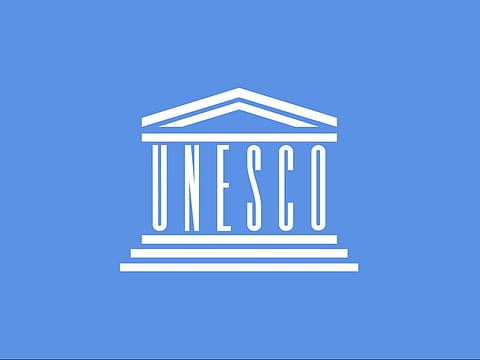Why America should return to Unesco
Dialogue is the way. Both the UN and the US have a lot to gain from each other

The United States quit Unesco, the United Nations cultural organisation, this month. It did not go quietly. A “cesspool,” Nikki Haley called it. “Unesco is among the most corrupt and politically biased UN agencies,” she tweeted.
True, Haley was on her way out the door as US ambassador to the United Nations and so unconstrained in speaking her mind. There’s scarcely a multilateral organisation around that the wall-focused, America-first Trump administration has not lambasted, threatened to leave or left.
In the case of the Paris-based Unesco, the departure was a slam dunk for President Donald Trump. His affinity for its mission of building world peace through cultural and scientific cooperation is as great as his affinity for reading and scholarship. That is to say nonexistent.
More important, Unesco has deplored and denounced one Israeli action after another. A decision in 2017 to designate as a Palestinian World Heritage site in danger an area in Hebron that includes the Cave of the Patriarchs stirred Israeli outrage. The organisation granted full membership to Palestine in 2011, prompting the United States and Israel to stop paying dues. By the time it left, the United States had around $600 million (Dh2.2 billion) in arrears.
Israel, which marches in virtual lock step with the Trump administration, also quit Unesco this month. Last year, Prime Minister Benjamin Netanyahu denounced the organisation’s “persistent and egregious bias against Israel.”
The pullouts smacked in the end of stubborn grandstanding rather than principle.
No surprise there: That’s the Trump approach to the world. Israel judges the price of deviating by a millimetre from its most powerful, uncritical backer to be too high.
Over-politicisation
Under Audrey Azoulay, the director-general who took up her post after Trump announced the decision to leave, Israel and Arab states have reached consensus on a dozen Unesco texts — a new development. A Holocaust education website was introduced along with the United Nations’ first educational guidelines to combat anti-Semitism.
“Unesco was being used for things not strictly in its sphere, like issues of sovereignty,” Azoulay told me in an interview. “The debate about over-politicisation was legitimate given how the organisation was being used, especially in the last decade. There was a loss of credibility. I have tried hard to reduce the politicisation and work for consensus.”
She continued: “In the light of the progress made over the past 12 months, I deeply regret the withdrawal of the United States, a founding member, and Israel.”
A Unesco conference on anti-Semitism was held on the sidelines of the UN General Assembly last September. Netanyahu had shown serious interest in attending. But to offend Trump and Haley was, in the end, a bridge too far for the Israeli prime minister. In his speech, Secretary-General Antonio Guterres did not pull punches. He said anti-Semitism was expressing itself” and used “the pretext of the situation in the Middle East to target Jews and Jewish symbols.” He denounced neo-Nazi and white supremacy groups and spoke of “tribalism run amok.” Azoulay’s senior staff has tempered the language of Unesco resolutions on the Middle East through diplomatic mediation, relegating the most sensitive language to nonbinding annexes.
The former Israeli ambassador to Unesco, Carmel Shama Hacohen, compared the atmosphere last April to “a wedding.” Last June he welcomed a “new spirit” and said that there was a “a need to re-evaluate, in full coordination with the US, the question of leaving.”
It is a pity that his advice was not heeded. To leave when you are getting what you want is petulant. The world needs more dialogue, not less. Unesco, for all its failings, plays an important role. It supports press freedom, promotes literacy and preserves the idea of culture as the connective tissue of humanity.
Trump might also consider that it creates jobs. For example, since Paducah, Kentucky, a Centre of quilt making, was named part of Unesco’s network of “creative cities,” it has benefited from increased tourism.
The real cesspool is elsewhere: in the moral depravity of a US government that no longer stands firmly with freedom, democracy, decency, a free press and the rule of law. In the notion that “culture” is money. In the systematic undermining of truth. Israel, of all countries — and especially if its real concern is anti-Semitism — should not move in lock step with an administration given to innuendo about cosmopolitan financiers and the like.
Leaving a reforming Unesco was a mistake for both the United States and Israel. The United States left once before, in 1984, only to announce its return in 2002. It should reconsider.
— New York Times News Service
Roger Cohen is a noted American journalist, commentator and author.


